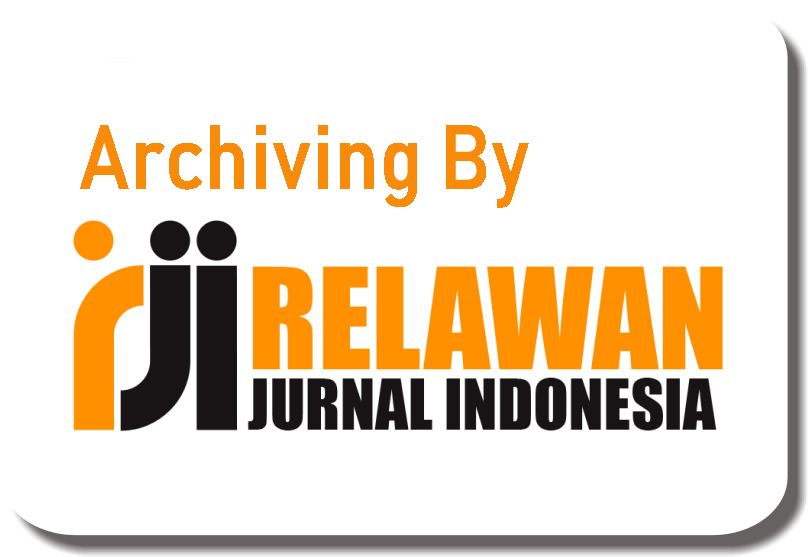Assessing Teacher Readiness in Early Childhood Education: An Analysis of the 2025 UM PPG Trial Question Instrument.
Abstract
The academic readiness of PAUD teachersis an important indicator in determining their success in participating in the Teacher Professional Education (PPG). The problem that arises is the lack of comprehensive mapping regarding the level of academic readiness of PAUD teachers, particularly in the context of implementing the PPG tryout. This study aims to analyse the academic readiness of PPG PAUD participants in 2025 based on the results of a tryout participated in by 388 respondents from various regions in Indonesia. The study population consisted of all PAUD teachers who participated in the PPG UM 2025 tryout, with a sample of 388 individuals selected through total sampling. The research method employed was a descriptive, quantitative approach with frequency distribution analysis techniques. The results showed that 76 respondents (19.59%) were in the low readiness category, 256 respondents (65.98%) in the medium category, and 56 respondents (14.43%) in the high category. These findings indicate that the majority of teachers are still at the medium level of readiness, which means the a need for further academic intervention strategies. Therefore, it is recommended that institutions that organize PPG PAUD strengthen their academic provision programs, especially in the form of clinical questions, structured tutoring, and improving pedagogical and professional competencies to support a better transition towards PPG.
Keywords
Full Text:
PDFReferences
Aisyah, E. N., Hardika, H., Iriyanto, T., Maningtyas, R. T., & Utamimah, S. (2024). Evaluasi Kecukupan Konten Pembelajaran dalam Kurikulum PPG Prajabatan: Kesiapan Guru Profesional dalam Menghadapi Tantangan Pendidikan Modern. Journal of Education Research, 5(4), 5728-5735.
Ary, D., Jacobs, L. C., & Sorensen, C. (2018). Introduction to research in education (10th ed.). Boston: Cengage Learning.
Azwar, S. (2017). Reliabilitas dan validitas. Yogyakarta: Pustaka Pelajar.
Budiarti, T., & Shintarahayu, A. (2024). Evaluating kindergarten teachers’ readiness for technology-integrated pedagogy. Jurnal Pendidikan dan Pembelajaran, 28(1), 12–25. https://jurnal.fkip.unila.ac.id/index.php/jpp/article/view/32719
Chung, S. (2019). Teacher preparation for early childhood education: Bridging the gap between theory and practice. Early Childhood Education Journal, 47(3), 345–356.
Creswell, J. W., & Creswell, J. D. (2018). Research design: Qualitative, quantitative, and mixed methods approaches (5th ed.). Thousand Oaks, CA: Sage.
Darling-Hammond, L. (2017). Teacher education around the world: What can we learn from international practice?. European Journal of Teacher Education, 40(3), 291–309.
Darling-Hammond, L. (2020). Teacher education and the struggle for teacher quality: International perspectives. Teachers College Record, 122(3), 1–32.
Handayani, T., & Sari, D. (2022). Analisis kesiapan akademik calon guru dalam program PPG prajabatan. Jurnal Pendidikan Indonesia, 11(2), 210–220.
Kemdikbudristek. (2021). Kebijakan PPG dalam jabatan dan prajabatan. Jakarta: Direktorat Jenderal Guru dan Tenaga Kependidikan.
Koehler, M. J., & Mishra, P. (2021). Revisiting TPACK: Challenges and opportunities for teacher education. Journal of Educational Computing Research, 59(1), 1–20. https://doi.org/10.1177/0735633121996147
Mulyasa, E. (2020). Pengembangan dan implementasi PPG di Indonesia. Bandung: PT Remaja Rosdakarya.
Neuman, W. L. (2014). Social research methods: Qualitative and quantitative approaches (7th ed.). Boston: Pearson.
Nisa, L., Wijaya, P., Ermawati, D., Lestari, A., Tjalla, A., & Wahyuni, S. (2024). Assessing the readiness of early childhood teachers to facilitate inclusive classes. Jurnal Pendidikan Anak Usia Dini Undiksha, 12(2), 233–247. https://ejournal.undiksha.ac.id/index.php/JJPAUD/article/view/70495
Nuraeni, T., Nuroniah, L., & Hendriawan, A. (2025). Persepsi guru PAUD terhadap implementasi kurikulum Merdeka Belajar. Aulad: Journal of Early Childhood Education, 8(1), 45–57. https://www.aulad.org/aulad/article/view/982
OECD. (2019). Starting Strong VI: Supporting teachers, skills and practice in early childhood education. Paris: OECD Publishing.
Retnawati, H. (2019). Analisis instrumen asesmen kompetensi guru. Jurnal Evaluasi Pendidikan, 10(1), 12–26.
Rumpoko, R., & Diana, N. (2022). Kesiapan kompetensi guru PAUD dalam menyongsong pendidikan anak usia dini di era society 5.0. Jurnal Obsesi: Jurnal Pendidikan Anak Usia Dini, 6(5), 4712–4722. https://obsesi.or.id/index.php/obsesi/article/view/3023
Shulman, L. S. (1987). Knowledge and teaching: Foundations of the new reform. Harvard Educational Review, 57(1), 1–22.
Sudijono, A. (2018). Pengantar evaluasi pendidikan. Jakarta: RajaGrafindo Persada.
Sugiyono. (2019). Metode penelitian kuantitatif, kualitatif, dan R&D. Bandung: Alfabeta.
UNESCO. (2021). Southeast Asia teachers’ competency framework for early childhood education. Bangkok: UNESCO Publishing.
UNESCO. (2022). Global education monitoring report 2022: Teachers’ readiness and support. Paris: UNESCO Publishing
DOI: https://doi.org/10.31004/jele.v10i6.1510
Refbacks
- There are currently no refbacks.
Copyright (c) 2025 Eny Nur Aisyah, Evania Yafie

This work is licensed under a Creative Commons Attribution-ShareAlike 4.0 International License.



